Power plants rely on cooling water systems to manage heat and keep turbines, pumps, and generators running safely.
Any leak or failure in these systems can lead to downtime, efficiency loss, or environmental damage.
Tungsten carbide seal rings are one of the most reliable materials for pumps and compressors in cooling water systems.
This article explains why they are essential, their benefits, and how to use them effectively.
Why Cooling Water Systems Need Reliable Seals
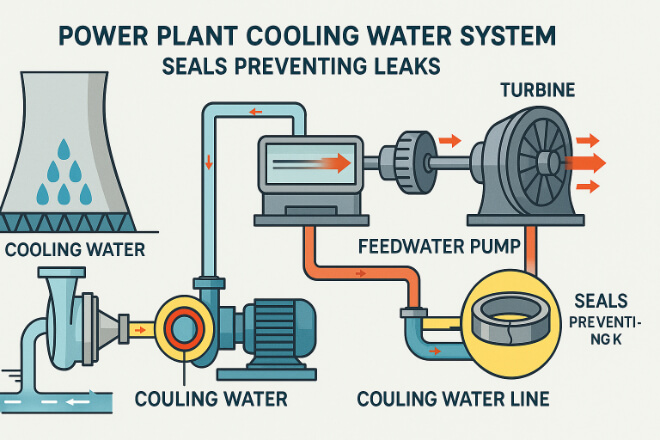
Prevent leaks → Protect equipment and reduce water loss.
Maintain efficiency → Proper seals help pumps operate at full performance.
Reduce downtime → Reliable seals minimize unplanned maintenance.
Avoid contamination → Prevents cooling water from mixing with other fluids.
Protect the environment → Stops harmful discharges into natural water sources.
Key Properties of Tungsten Carbide Seal Rings
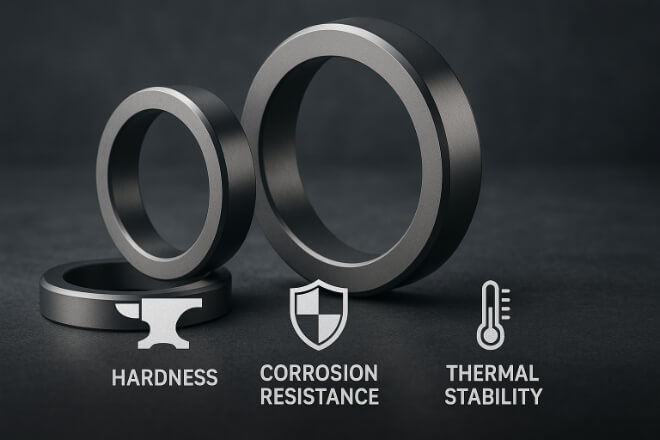
Tungsten carbide is a compound of tungsten and carbon, bonded with cobalt or nickel. It offers:
Extreme hardness → Resists abrasion from particles in water.
High compressive strength → Handles high pressure in large pumps.
Corrosion resistance → Works well with treated or brackish water.
Thermal stability → Maintains sealing performance under temperature changes.
Long service life → Fewer replacements and lower maintenance costs.
Cobalt-Bonded vs Nickel-Bonded Tungsten Carbide
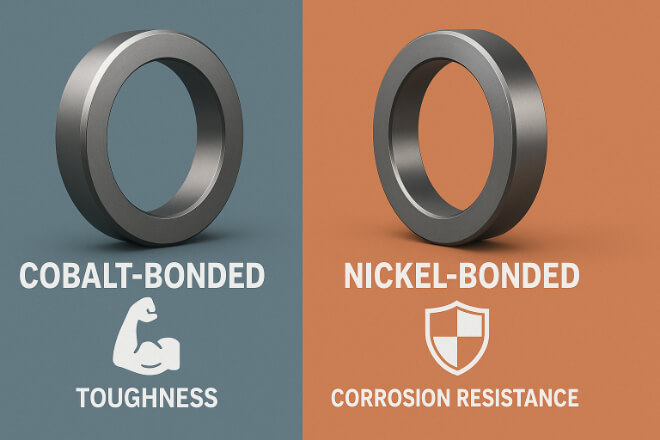
1). Cobalt-bonded tungsten carbide
Greater toughness for pumps exposed to vibration or shock.
Common in large turbine cooling systems.
2). Nickel-bonded tungsten carbide
Superior corrosion resistance.
Ideal for brackish or chemically treated water.
Advantages Over Other Seal Materials
| Feature | Tungsten Carbide | Ceramic | Steel |
|---|---|---|---|
| Wear Resistance | Excellent for abrasives | Moderate | Poor |
| Corrosion Resistance | High (nickel grades) | Very Good | Low |
| Toughness | High, resists shock | Low, brittle | Moderate |
| Thermal Performance | Excellent at high heat | Good | Moderate |
| Service Life | Long-lasting | Moderate | Short |
Applications in Power Plant Cooling Water Systems
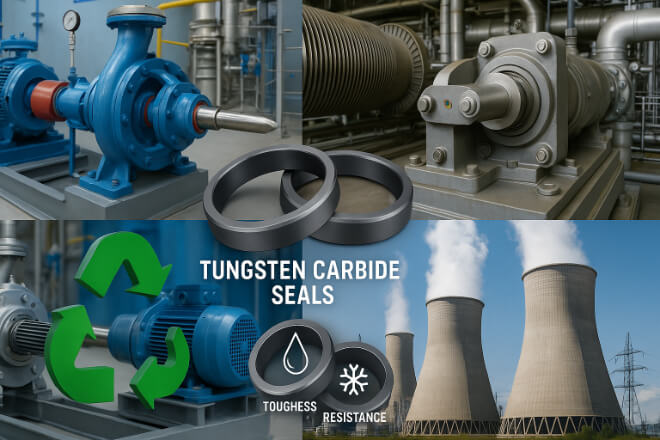
Tungsten carbide seal rings are widely used in:
Main cooling water pumps → Ensure reliable, leak-free operation.
Circulating pumps → Maintain water movement for turbine efficiency.
Auxiliary systems → Protect small pumps in control circuits.
Brackish water systems → Resist corrosion in coastal plants.
Backup generators → Provide sealing under varying temperatures and pressures.
Cost vs Long-Term Value
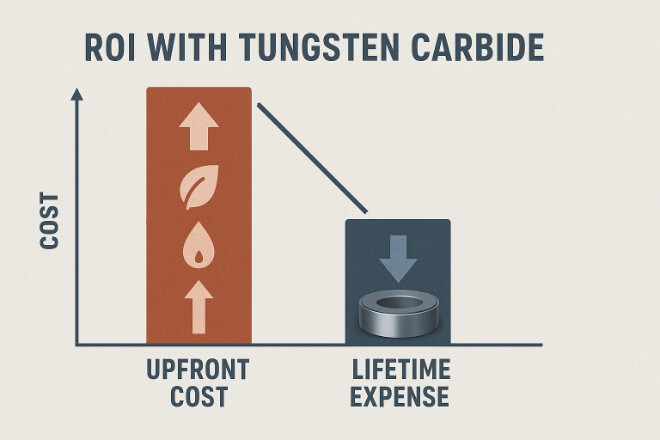
Although tungsten carbide seal rings cost more upfront:
Reduce downtime → Fewer failures mean less lost production.
Lower maintenance → Longer service life reduces labor and spare parts.
Protect equipment → Prevents damage to expensive pumps and turbines.
Improve ROI → Long-term savings offset initial costs.
Environmental and Safety Benefits
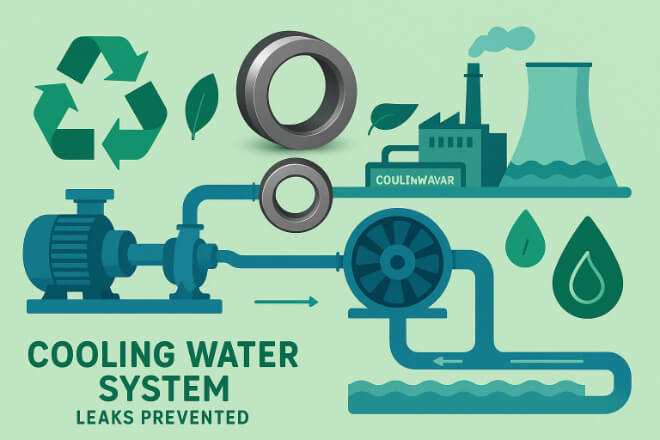
Leak prevention → Protects local water sources and ecosystems.
Recyclable material → Supports power plants’ sustainability goals.
Efficient performance → Reduces wasted energy in pumps and compressors.
Best Practices for Using Tungsten Carbide Seal Rings
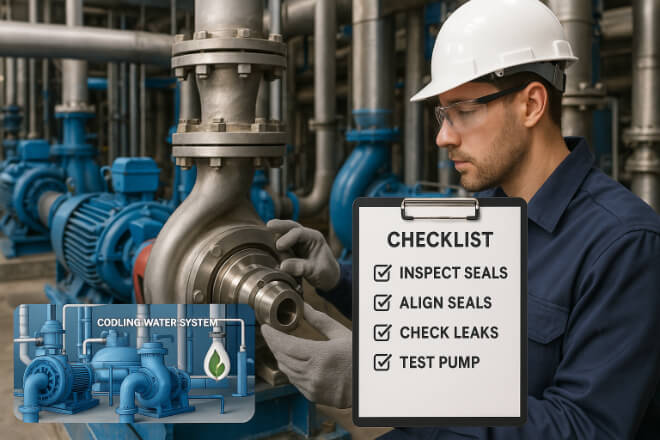
Choose the right binder → Nickel for brackish or chemical-rich water, cobalt for vibration-heavy pumps.
Inspect seals regularly → Detect early wear to prevent failures.
Ensure proper installation → Avoid scratches or misalignment during assembly.
Maintain proper lubrication → Prevent dry running that can damage seals.
Work with trusted suppliers → Get quality materials and accurate specifications.
Key Takeaways for Decision-Makers
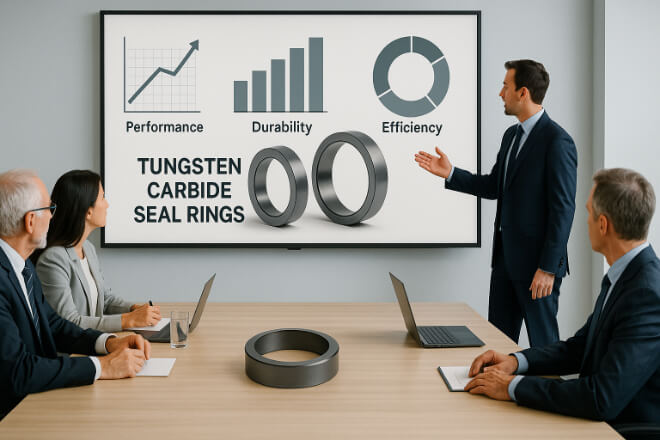
Tungsten carbide seal rings are the best choice for power plant cooling water systems.
They combine durability, corrosion resistance, and toughness for long-term performance.
Higher upfront cost delivers better ROI through reduced downtime and maintenance.
Proper selection and care ensure reliable, leak-free operation.
Conclusion
Power plant cooling water systems demand seals that can perform under pressure, temperature shifts, and corrosive conditions.
Tungsten carbide seal rings deliver the strength and reliability required to keep operations efficient and safe.
For decision-makers, investing in tungsten carbide ensures long-term savings, environmental protection, and operational reliability.
If you want to know more details about any company, please feel free to contact us.
